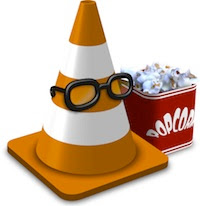 VLC is perhaps one of the most versatile and feature-loaded media players around. The open-source, cross-platform software is known for its ability to play videos encoded in most of the well-known video and audio formats. Apart from being a media player, VideoLAN Client, or VLC, can also act as a streaming media server, a CD-ripper, a screen-capture tool and much more. Although many people use the renowned media tool as a video player, its amazing prowess in other areas often goes overlooked. So, if you’re one of those people looking to get the most out of this popular media player, read on as we cover the best tips and tricks for your VLC.
VLC is perhaps one of the most versatile and feature-loaded media players around. The open-source, cross-platform software is known for its ability to play videos encoded in most of the well-known video and audio formats. Apart from being a media player, VideoLAN Client, or VLC, can also act as a streaming media server, a CD-ripper, a screen-capture tool and much more. Although many people use the renowned media tool as a video player, its amazing prowess in other areas often goes overlooked. So, if you’re one of those people looking to get the most out of this popular media player, read on as we cover the best tips and tricks for your VLC.1. Converting files
VLC can also act as an audio and video converter, thus allowing you to switch your media to and from different formats like MP3, OGG, and MP4. To get started with file conversion, simply press Ctrl+R or if you aren't a big fan of keyboard shortcuts, simply go to the Media option in the menubar. Then, select the file or files you want to convert by using the Add button. Once you’re done adding them, hit the Convert/Save button. Now, a new window will pop up letting you choose the destination and the output format. Choose the appropriate settings and hit the start button.
2. Take screenshots of videos
Ever love a scene so much that you want to share it with your friends? Or maybe not a complete scene, just a particular moment? Don’t worry, VLC takes care of it perfectly by letting you take screenshots of videos without any complex button-pressing. To take a screenshot, simply press Shift+S or, from the menubar, go to Video, and hit the ‘Take Snapshot’ button. Once you hit the button, you’ll see a small thumbnail of the screenshot at the left corner of your video. The image will be saved in your Pictures folder.
3. Fine-tune your audio with the graphic equalizer
If you’re an audiophile and you prefer to listen to your tunes on VLC, then the open-source application can also act as a full-fledged music player. Apart from displaying the cover art and other information of the currently playing song, VLC comes with a completely functional graphic equalizer. The best way to get started with it is by using the pre-loaded presets and then moving on to individual fine-tuning. To open the equalizer, press Ctrl+E while on the main window; or, from the menubar, go to Tools and click the option that says Effects and Filters.
4. Record videos from webcam
If you want to record your own videos for uploading on YouTube or sending a video message to your friends, VLC can act as a full-fledged video recorder. Just fire up VLC and press Ctrl+C. Then, select the appropriate capture device (which is your webcam) and start recording.
5. VLC essential shortcuts
If you are a keyboard junkie like me, here are some of the essential shortcuts you need to know:
f = Fullscreen
Space = Play or Pause
+ = Play faster
- = Play slower
s = Stop
Ctrl + q = Quit
Ctrl + Up or Mousewheel up = Volume up
Ctrl + Down or Mousewheel down = Volume down
m = Mute
Shift + Right arrow key = Skip forward
Shift + Left arrow key = Skip backward
6. Jump to specific time in the video
To jump to a specific time in the video, just use the Ctrl+T shortcut and enter the time you want to jump in to.
7. Stream and download free music from Jamendo and Free Music Charts
If you are a music aficionado you can listen to some free and CC-licensed tunes from Jamendo. To get started, first you have to open the playlist menu by using the Ctrl+L shortcut. On the left pane, you’ll find various options like My Computer, Devices, and so on. Just scroll down a bit and select the option that says Internet. Now, go to the Jamendo Selections option and select your favorite genre. If you were clueless as to where to start, I’d recommend you to try out the ‘Top 20 popular songs this week’. Also in the Internet menu you’ll find other choices like Freebox TV, Free Music Charts, and more.
Written by: Abhishek, a regular TechSource contributor and a long-time FOSS advocate.

No comments
Post a Comment